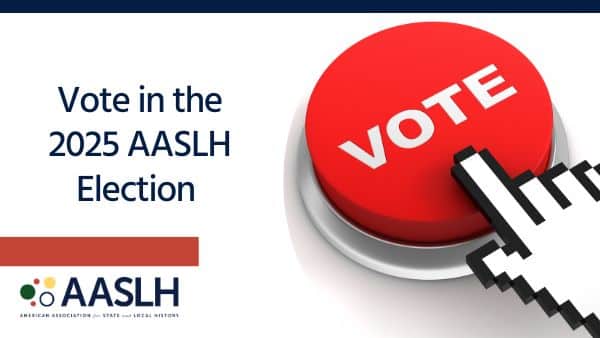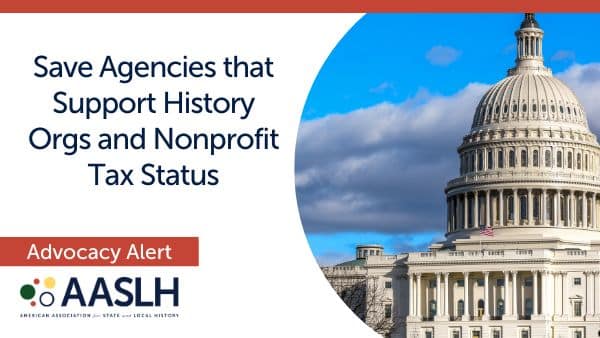
This article was originally published in November 2016 on the blog of Developing History Leaders @SHA, a three-week historic administration seminar AASLH puts on every year along with several partners. It was written during the seminar.
History workers speak about the power of impact. A researcher’s archival discovery connects an African-American neighborhood with the hidden past of a Revolutionary era house. At a Navy museum exhibit, a colorfully tattooed 19-year-old U.S. Navy sailor describes secretly embroidered early 1900s “liberty” uniforms as “the coolest thing I’ve ever seen.”
These “wow” moments hold power. But by focusing on the visitors, the sites, the “old stuff,” we overlook ourselves. What about us? To be sustainable organizations, should we focus on history professionals building sustainability through the power of relationships?
Power arises from generosity of spirit. We build power in the history industry when we share knowledge and insights with our future co-workers. We build power by broadening organizational capacity to sector-wide capacity. By nurturing relationships, we develop effectiveness, reputation, and power.
My first week at the Developing History Leaders @SHA, it all came together; generosity of spirit builds a powerful network that supports sustainability. Here in Indianapolis, I see institution-building and journeys to sustainable organizations, not zero-sum destructive competition. Generosity of spirit is not transactional giving, but a transformational system of mentoring, teaching, receptive lifelong learning, and openness to new roles. The impacts of transformational leadership have come together for each of us as Developing History Leaders with our readings, lectures, and nighttime discussions.

One of Wilma Moore’s books.
At SHA for me, I see power from my past. Twenty years ago, I was a graduate student researching African-American coal miners who founded the nation’s first bi-racial labor unions. Wilma Moore, archivist for African-American history at the Indiana Historical Society, helped in the researcher-archivist exchange. In Wilma’s writings and her presence, she exuded grace, calm, and connectedness. Over time, Wilma became a mentor to me and my research uncovered her ancestor Thomas Washington’s part in history.
Two years later, in 1998, a young northwest Indiana college student named Amy Belcher connected with my employer and me for internship learning. Amy was bright, hardworking, but needed social capital. I pulled her alongside me during the fast-paced workdays and experiences. She thrived. Later, Amy risked a leap to Indianapolis, then pushed through two master’s degrees. Amy landed at the Indiana Historical Society and worked with my mentor, Wilma Moore, as her mentor. Relationships intersected.
In the early 2000s, I saw opportunities in expanding my then-employer’s scope of impact beyond the physical walls of a Midwestern regional archival repository in Chicago. If researchers were going to want to come to the archives, I needed to bring the archives to those potential researchers.
The Indiana Historical Society was centrally located three hours away, and at IHS, Trina Nelson-Thomas (SHA Class of ’96) recognized the possibilities of the two institutions fitting together for focused programs. But Trina went beyond an exchange: she talked about a shared vision, like business partners. Then Trina encouraged me repeatedly to apply to Developing History Leaders @SHA.
But my life got interrupted. And got interrupted more. Fifteen years more. Transformations take incredible effort, vision, persistence, and resilience.
New jobs provided me amazing new opportunities and growth. I finally could apply to SHA. Being accepted is thrilling. The learning is intensive and challenging, but instructors and classmates show many common traits. The three most common we share? An indirect, sometimes winding path in a career, generosity of spirit, and a drive to make history professionals powerful.
“My” one-time intern Amy attended the Seminar for Historical Administration in 2010. Recently, Amy rose to become the Director of Reference at the Indiana Historical Society’s special collections library. She also co-edited a major book. Wilma Moore remains the griot of African-American History in the Midwest, an incredibly wise mentor, seeker, questioner, writer. Trina Nelson-Thomas moved outward from IHS a few years ago to become an executive director in Texas, but current SHA instructors name her and cite her transformational impact upon the institution.
And I am the SHA student, learning, listening, thinking, envisioning from SHA teachers, classmates, colleagues. I am grateful for their generosity of spirit.
Your relationships can be transformational, if you allow yourself to build capacity in others and yourself. Be generous in your spirit and build relationships. Build power. Consider developing your own leadership at the Seminar for Historical Administration next year.
This blog was originally written while attending SHA on personal time, not as a federal employee. The opinions expressed are personal and do not necessarily reflect the policies and procedures of the Naval History and Heritage Command, nor any other agency of the the U.S. Government.
Want to write for AASLH? Learn more and submit an article here.



